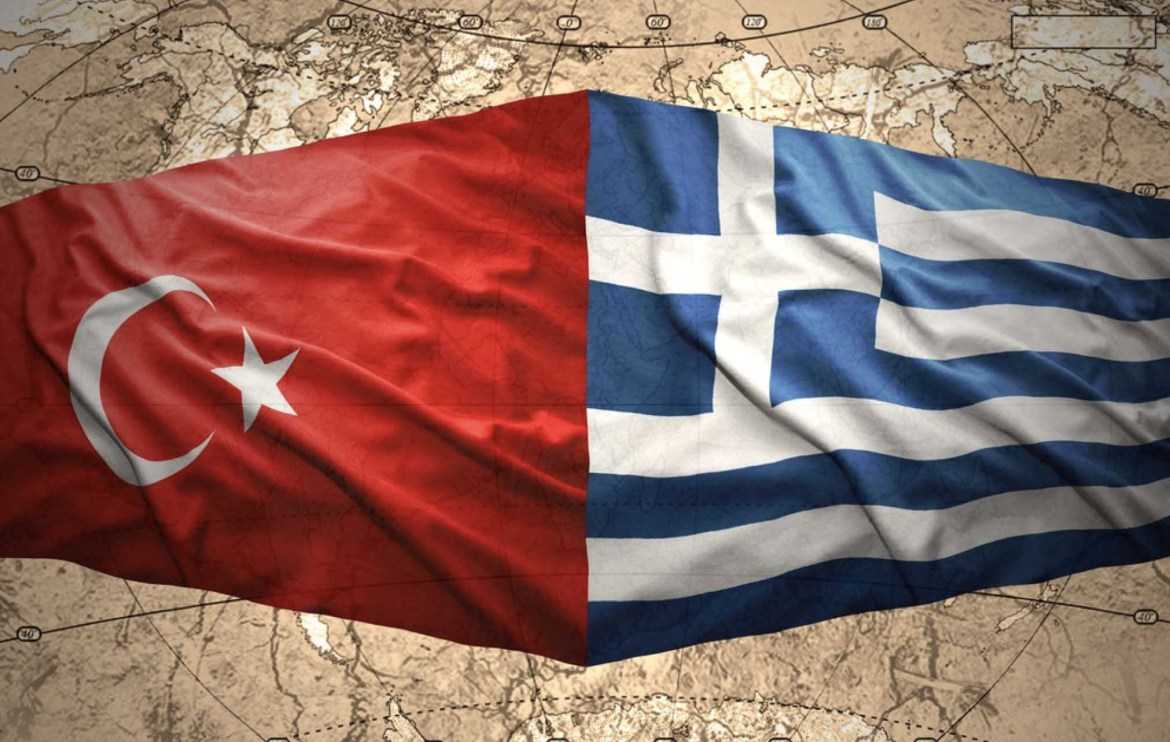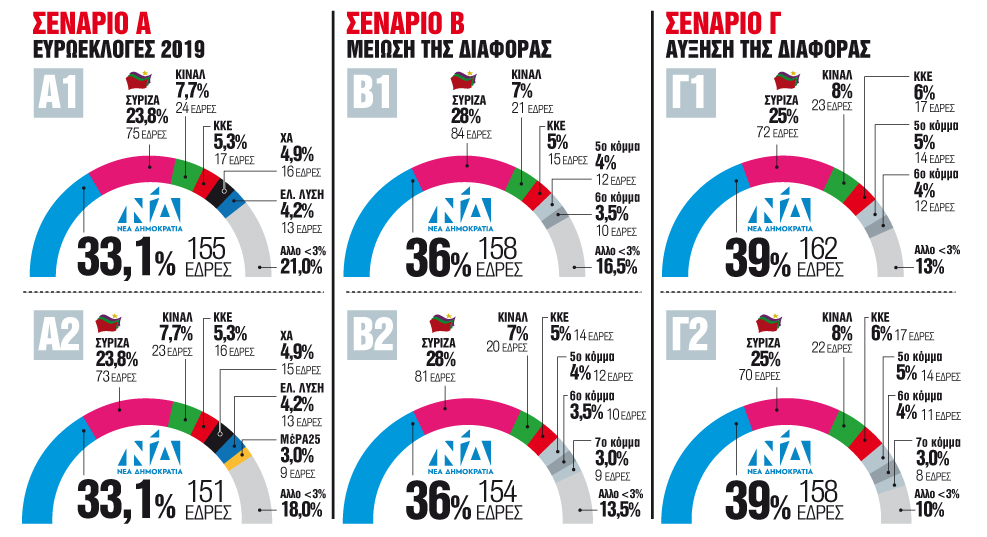Ο οικονομικός συντάκτης του Financial Post David Kennedy αναλύει τις επιπτώσεις μιας πιθανής εξόδου της Ελλάδας από την ευρωζώνη εφόσον ναυαγήσουν οι διαπραγματεύσεις και καταλήγει στην εκτίμηση πως κάτι τέτοιο θα προκαλέσει ευρωπαϊκή καταστροφή με παγκόσμιες επιπτώσεις.
Αναλυτικά οι 3 εκτιμήσεις του Financial Post
1. Τι θα συμβεί στο ευρώ;
Θα έχουμε επιστροφές… από τα παλιά. Το γαλλικό φράγκο, η ιταλική λίρα και το γερμανικό μάρκο θα επανέλθουν. Ο πρώην επικεφαλής της FED, Άλαν Γκρίνσπαν πιστεύει ότι η έξοδος της Ελλάδας από το ευρω θα σημάνει και το τέλος του ενιαίου νομίσματος. Ακόμα και χωρίς την ολοκληρωτική κατάρρευση του ευρώ, η ελληνική έξοδος θα θα αφήσει την ΕΚΤ με ένα τεράστιο ελληνικό χρέος δισεκατομμυρίων ευρώ. Το ευρώ θα υποτιμηθεί και οι χώρες της ευρωζώνης θα είναι ευάλωτες.
Πάντως παρότι ο Γκρίνσπαν θεωρεί ότι η έξοδος είναι αναπόφευκτη υπάρχουν και άλλοι οι οποίοι δεν είναι τόσο απαισιόδοξοι για την ευρωζώνη. Αναλυτές τονίζουν ότι η ευρωζώνη όχι μόνο είναι ανθεκτική και αντέχει μια ελληνική έξοδο αλλά θα είναι και καλύτερα χωρίς την Ελλάδα που δεν κάνει τίποτε άλλο από το να την βυθίζει στα χρέη.
2. Τι θα γίνει στην υπόλοιπη Ευρώπη;
Όσο περισσότερο καθυστερεί μια συμφωνία, τόσο περισσότερο αυξάνονται οι φόβοι ότι μια έξοδος της Ελλάδας από το ευρώ θα στείλει τους ευρωπαίους πανικόβλητους στα γκισέ των τραπεζών και στα ΑΤΜ για να σηκώσουν τις οικονομίες τους.
Η εύθραυστη ευρωζώνη, ήδη είναι αντιμέτωπη με τους χαμηλούς δείκτες κατανάλωσης και τα νέα μιας εξόδου της Ελλάδας από το ευρώ θα οδηγήσει τους επενδυτές από όλο τον κόσμο να ρευστοποιήσουν μαζικά ότι έχουν και δεν έχουν στην Ευρώπη. Το σενάριο αυτό θα δημιουργήσει τεράστιο πρόβλημα. Επίσης, αν η Ελλάδα βγεί από την ευρωζώνη οι επενδυτές θα θεωρήσουν τις υπόλοιπες χώρες με αδύναμους οικονομικούς δείκτες, όπως την Κύπρο, την Ιρλανδία, την Πορτογαλία, την Ισπανία και την Ιταλία ως τίποτε άλλο παρά απαγορευτικές για επενδύσεις. Οι συγκεκριμένες χώρες θα αναγκαστουν να πληρώσουν για να δανειστούν και τα ομόλογά τους θα θεωρηθούν τοξικά.
3. Πως θα επηρεάσει την παγκόσμια οικονομία;
Όταν η Ελλάδα θα βγεί από την ευρωζώνη η κρίση δεν θα περιοριστεί αλλά θα εξαπλωθεί και στις υπόλοιπες χώρες του κόσμου. Αυτό σημαίνει ότι θα έχει αντίκτυπο στην παγκόσμια αγορά ενέργειας και θα πλήξει τις παγκόσμιες εξαγωγές. Μην ξεχνάμε, ότι η Ε.Ε. εξυπηρετεί το ένα πέμπτο του παγκόμσιου εμπορίου.
ΤΟ ΔΗΜΟΣΙΕΥΜΑ ΤΟΥ FINANCIALPOST
What happens if Greece exits the Eurozone? Three big questions explained

Not even during the 2012 European debt crisis has Greece’s place in the Eurozone been more tenuous. Greece will seek about 10 billion euros (US$11.3 billion) in short-term financing as it tries to stave off a funding crunch.
Its bailout program – worth about US$272.5 billion in international loans in exchange for structural reforms – expires on February 28.
As the possibility of a Grexit looms, finance chiefs began talks at the G20 in Istanbul Monday to try to force Greece and its creditors to strike a deal. The repercussions of a Eurozone break-up could be catastrophic for both the European and global economies.
Here are three big questions and explanations on what happens if Greece exits the Eurozone:
1. What will happen to the Euro?
Francs, lira and deutsche marks could make a comeback.
Former U.S. Federal Reserve chairman, Alan Greenspan, thinks Greece pulling out of the Eurozone would spell the end of the single currency.
Even without a complete breakdown of the euro, a Greek exit will leave the European Central Bank holding billions of dollars of Greek debt and few options. The euro could face devaluation and leave Eurozone countries vulnerable to masses of investors retreating to safer shores.
While Mr. Greenspan thinks a Greek exit is inevitable and “the best strategy,” others are not so pessimistic about the Eurozone’s chances. David Kotok, chairman and chief investment officer at Cumberland Advisors Inc., thinks the Eurozone is not only strong enough to withstand a Greek exit, but will be better off without the embattled Mediterranean nation dragging it further into debt. “[The] Eurozone can withstand the loss and will be better after Grexit,” said Mr. Kotok. “Feeding more to a failed system of governance only exacerbates the final cost.”

The longer it takes for all parties to reach a deal, the more fears mount that a Greek exit will send Europeans rushing to banks in droves to withdraw their savings. The fragile Eurozone has already been facing declining consumer prices and news of a Greek exit could lead international investors to liquidate their European assets en masse. The scenario could create a cash-flow problem and deflationary spiral thereafter.
Furthermore, if Greece exits the Eurozone, investors will begin to view the weaker European economies – Cyprus, Ireland, Portugal, Spain, and possibly Italy – as risks. European countries will be forced to pay more to borrow money, and their equities will be tainted, according to Charles Collyns, chief economist at the Institute of International Finance.
If the Eurozone remains intact, fragile European economies who have been looking to enter the Eurozone can also expect their bids to be put on hold, as the EU will be in no shape to take on further risk. “There is a meaningful risk that other countries would join Greece in leaving the euro,” UBS Group AG said. “The euro is patently not an optimal currency union at the moment, which gives economic momentum to the idea of a broader fragmentation.”
3. How will it affect the world economy?
The European Union accounts for about one-fifth of global trade. As the fallout from the crisis spreads from Greece to the EU, onlookers fear that it won’t stop there.
A slowdown in Europe could lead to further shocks to the world energy market and damage to global exports.
“This would be a first-magnitude event that would certainly have a major set of stresses across markets,” Mr. Collyns said.
While the world economy and the American economic engine, in particular, are stronger than they were during the last Greek crisis in 2012, analysts fear that with interest rates near zero, the global economy may not be strong enough to weather a Greek exit and full-blown European crisis.
The potential Grexit was already weighing on markets Monday. The major European stock indexes fell while Greek banks plunged by more than 10% amid fears that deposit flight is accelerating.
Πηγή: thehuffingtonpost.gr






